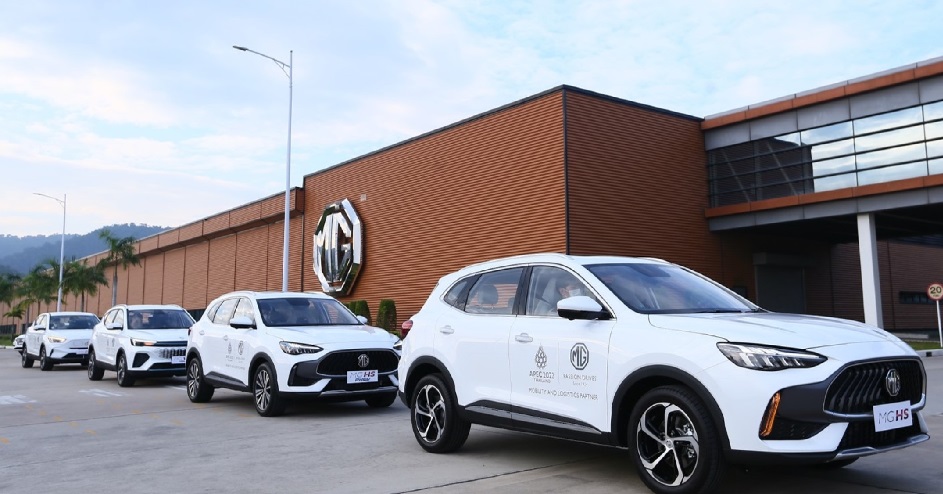SAIC Motor-CP, which manufactures electric vehicles (EVs) under the MG brand, is aiming to be the first domestic EV-maker to export vehicles to untapped European markets.
Chinese EV manufacturers are facing trade protection measures from the European Commission, who have erected a tariff wall as high as 38% for imports from the Asian giant, and Thai automakers should take advantage of the situation, Suroj Sangsnit, SAIC Motor-CP executive vice president, said on Friday.
He stated the high tariff wall, as well as the requirement to reveal all technology used in the products in import documents, have forced Chinese automakers to establish manufacturing bases overseas instead.
Thailand can use this chance to become a manufacturing base for Chinese EVs to export to Europe, he said, adding that to circumvent the EU trade protection measures, Chinese EVs manufactured in Thailand must contain over 40% locally made parts, so they can be considered as “originated from Thailand”.
Suroj pointed out that Chinese automakers have increased their investment in Thailand to stimulate technology development for EV parts, enabling Thai manufacturers to meet the 40% product origin requirement.
“Thailand never exports automobiles to Europe, as there has been no trade agreement between the two regions,” he said.
“It is estimated that Thailand will face import duties of 10-20% if it starts exporting EVs to Europe,” he added.
Suroj hoped that the government would finish negotiating a free-trade agreement with the European Union by the year-end, which would help open doors to EU markets for Thai EV manufacturers.
He added that the government should also promote the establishment of EV battery factories in Thailand, as batteries are the key component that would greatly increase the ratio of locally made parts in EVs.
Suroj said that SAIC Motor-CP could now make the following EV parts in its factories: ESS battery, HV/ LV harness, e-compressor, onboard charger and dc/dc converter.
Meanwhile, the manufacturing of BMS, tractor motor, drive control unit, reduction gear and PCU inverter is now being developed together with partners and suppliers.
The development could take at least a year, after which the parts must be tested by the Automotive and Tyre Testing, Research and Innovation Centre, which levies a testing fee of 1 million baht per part, he said.
Source: The Nation







